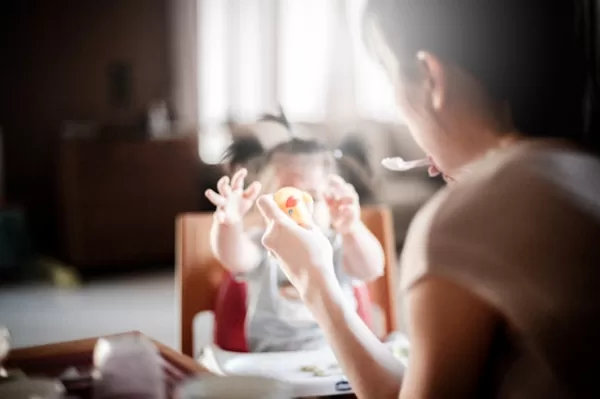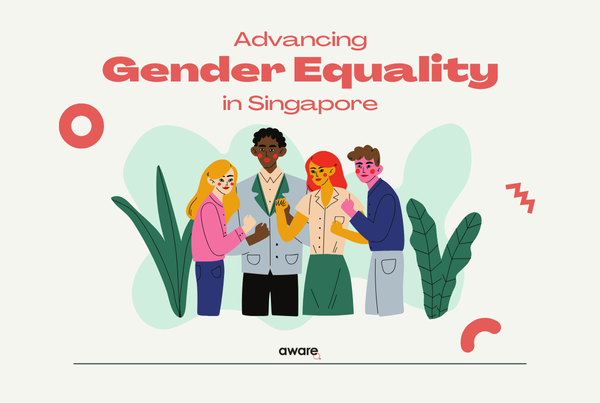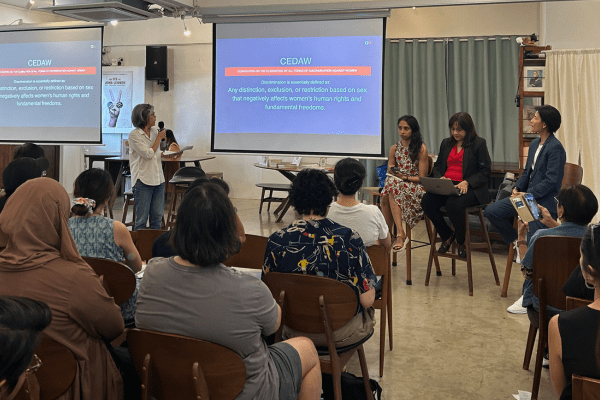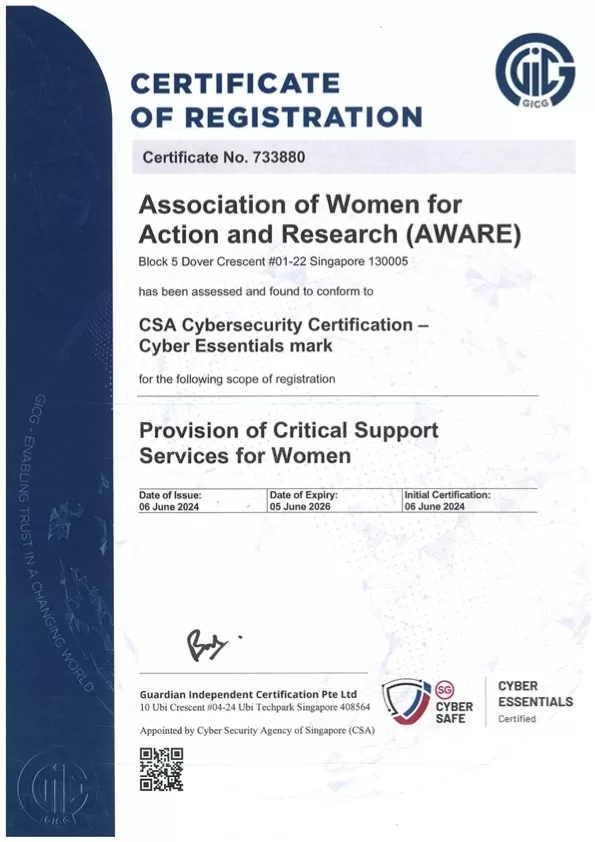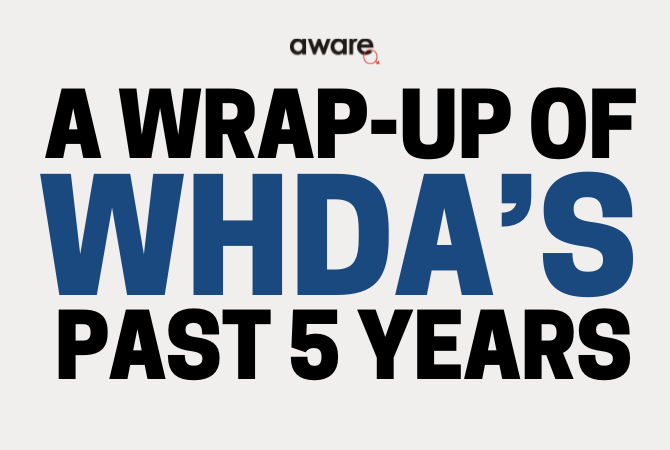
We launched our Workplace Harassment and Discrimination Advisory (WHDA) service five years ago at AWARE to support individuals facing workplace harassment and discrimination. Our goal was not only to support affected parties but also to understand the barriers they encountered in seeking justice and to advocate for stronger legal protections.
Our research and advocacy efforts, informed by our experiences with WHDA, have been fruitful and contributed to the introduction of the Workplace Fairness legislation and the Tripartite Guidelines on Flexible Workplace Arrangement Requests. AWARE thus discontinued the WHDA service from June 1, 2024.
Since September 2019, AWARE’s WHDA service has been a helpful resource for individuals in Singapore facing harassment or discrimination at work.
The WHDA has provided free, confidential advice and has supported over 1,100 individuals since its launch in 2019. An overwhelming majority (89.7%) of clients from 2023 and 2024 who responded to our feedback form said they felt better informed about their options and next steps.
“Knowing there is someone to turn to for discussion and support in a safe and confidential environment is very emotionally and mentally comforting,” a client said of the services they received from WHDA. “Family members may not be in the best position or equipped to provide the necessary support.”
Nearly 90% of clients in the past two years also said they felt emotionally and practically supported by their case manager.
One client said they really appreciated “the emotional support they gave me, their willingness to work with me, and their willingness to keep things confidential.”
Over the past five years, of the 1,122 cases seen by WHDA, a majority involved maternity discrimination, followed by cases of workplace harassment and/or bullying and workplace sexual harassment.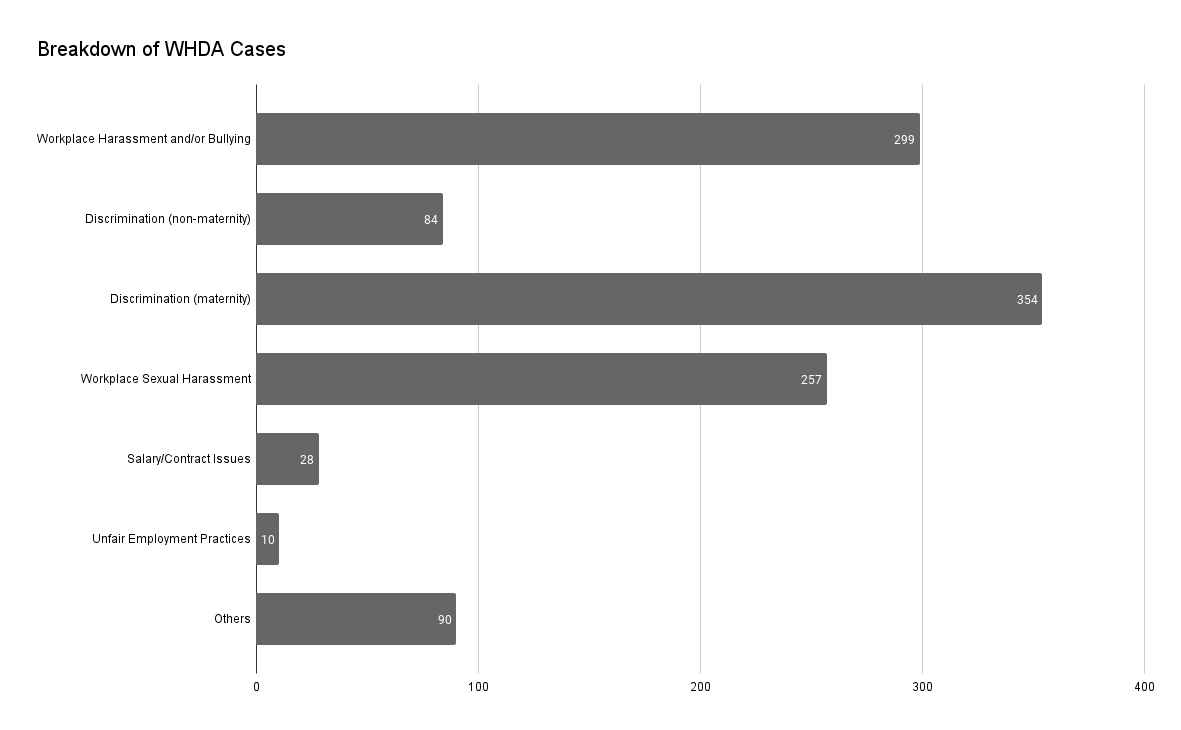
Date range: September 2019–May 2024
The calls received by WHDA concerning discrimination against women with maternity and caregiving responsibilities included women who have lost job opportunities, were denied promotions and reasonable accommodations, and faced mistrust and suspicion because of their caregiving duties.
A 2022 study by AWARE and Milieu Insight found certain groups proved more vulnerable to discrimination at work than others: Persons with disabilities experienced discrimination at a significantly higher rate (78%) than persons without disabilities (50%), as did LGBTQ persons (68%) compared to those who did not identify as LGBTQ (56%), and those of minority race (89%) compared to those of majority race (44%). Compared to 53% of men, 58% of women had experienced at least one type of discrimination.
According to an AWARE-Ipsos survey (2021), 40% of respondents had been subjected to some form of workplace sexual harassment within the previous five years. The actual number of cases in Singapore is difficult to estimate, as we know harassment is severely underreported: only 30 per cent of the victim-survivors in the AWARE-Ipsos survey went on to report their experiences.
The WHDA’s work has directly informed AWARE’s research and advocacy efforts. In recent years, we’ve seen many incremental positive changes. But more can always be done.
Under the Protection from Harassment Act (POHA), it is possible for victims of workplace harassment to seek remedies against harassers. However, this requires a victim to file an official report against the harasser, and not all workers wish to pursue legally punitive action. Many simply want their employers to intervene to stop the harassment and provide a safe working environment, so they can just continue to do their jobs.
POHA does not place any obligation on employers to implement protective and preventive measures, which leaves victims in a position of vulnerability even if punitive action is taken.
In the AWARE-Ipsos survey, we discovered that in two out of every five cases where reports were made, the harasser was reassigned or dismissed by the company; however, in another one out of every five cases, the harasser received no consequences despite evidence of harassment.
We recommended that the government introduce national legislation against workplace harassment, as well as regular anti-harassment training across industries and the universal adoption of grievance handling policies.
With the Ministry of Manpower’s acceptance in August 2023 of the Tripartite Committee’s recommendations for the Workplace Fairness Legislation (WFL), and the recent Tripartite Guidelines on Flexible Workplace Arrangement Requests which come into effect on December, 1 2024, we are now a step closer to providing greater protection to workers.
While it’s encouraging to see the progress thus far, the journey towards full legal protection continues. The current provisions of the WFL cover 95% of cases, with the protected characteristics prominently leaving out sexual orientation, gender identity, and expression (SOGIE). Furthermore, companies with fewer than 25 employees will be exempt from the legislation.
When we start talking about caregiving responsibilities, we frequently focus on women’s roles as mothers. However, in a rapidly ageing country like Singapore, women are expected to provide care to older members of their family too.
While childcare is acknowledged in government policies—employers and the government share equal responsibility in paying for childcare leave—caring for older persons does not receive the same recognition, even though both childcare and eldercare result in similar labour outcomes, such as withdrawal from the labour force, for women.
We will continue working to analyse client experiences so we can better highlight the prevalence of specific workplace harassment and discrimination issues.
But while the WHDA service may be ending, AWARE’s commitment to fostering safe and fair workplaces remains. We will continue to monitor the impact of the new legislation and advocate for further improvements.
We extend a heartfelt thank you to everyone who utilised the WHDA service, our dedicated team, and our partners who supported this initiative.
If you are currently experiencing workplace harassment or discrimination, please know that you are not alone. There are resources available to help. You can visit the Ministry of Manpower’s website for more information on workplace harassment: MOM Singapore Harassment, or reach out to our Women’s Helpline.
We remain committed to building a Singapore where everyone feels safe, respected, and valued at work.




